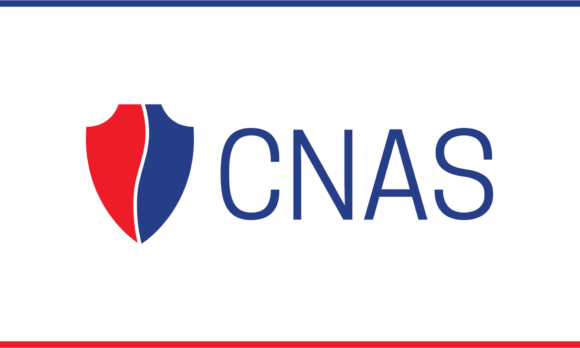August 26, 2020
Sharper: The Future of U.S. Sanctions Policy
Analysis from CNAS experts on the most critical challenges in U.S. foreign policy.
Sanctions are increasingly common in U.S. foreign policy and economic statecraft. But they are not a cure-all. Sanctions are effective only when used alongside other tools in a coherent strategy and aimed at clear policy objectives. CNAS experts are examining how and when the United States can employ sanctions most successfully. Continue reading this edition of Sharper to explore their ideas about how the United States must recalibrate sanctions policy.
Reports
Strengthening the Economic Arsenal
Policymakers need a clear framework for how to use economic coercion that complements and works alongside existing frameworks for the use of military coercion. In the CNAS report “Strengthening the Economic Arsenal: Bolstering the Deterrent and Signaling Effects of Sanctions,” authors Elizabeth Rosenberg and Jordan Tama outline ways to improve how the United States uses sanctions, including by making U.S. sanctions-removal assurances more credible, rethinking the role of sanctions in pressure targeting adversaries, and emphasizing the importance of information-sharing and transparency around sanctions for effective foreign policy.
Reengaging Iran
Any U.S. administration seeking diplomatic engagement with Iran will be forced to deal with a number of complicated challenges, including: the technical complexities of Iran’s nuclear program; the ability to unwind or reimpose a complex sanctions regime; the difficulties imposed by both Iranian and American domestic politics; and the interests and concerns of key international actors. To address this challenge, the CNAS report “Reengaging Iran: A New Strategy for the United States,” authored by Ilan Goldenberg, Elisa Catalano Ewers, and Kaleigh Thomas, outlines a phased approach for engaging Iran in 2021 that takes into account economic, regional, and nuclear issues.
Sanctions by the Numbers
While no quantitative list or specific number of designations can exactly gauge the coercive pressure applied on a target or the efficacy of using sanctions, CNAS' sanctions data-tracking project provides basic information about U.S. sanctions designations and delistings. In the first presentation of the series, Johnpatrick Imperiale examines the last ten years of U.S. financial sanctions designations as a core instrument of foreign policy. In the second installment, Abigail Eineman presents heat maps of the most heavily targeted states in three periods of time: over the course of the Obama administration from 2009–2017, the Trump administration from 2017–June 2020, and a snapshot of the past decade through June 2020.
Strengthening the Economic Arsenal
Foreword By David S. Cohen Sanctions occupy a strange place in U.S. national security. For many years, they were derided as mostly ineffective. The received wisdom was that sa...
Reengaging Iran
The international community may find Iran ready to consider a return to negotiations in 2021—regardless of the results in November....
Sanctions by the Numbers: The Geographic Distribution of U.S. Sanctions
In February, CNAS launched Sanctions by the Numbers, a project to track U.S. sanctions designations and delistings. In this second installment, heat maps show the most heavily...
Sanctions by the Numbers: U.S. Sanctions Designations and Delistings, 2009–2019
The United States uses financial sanctions as a prominent tool of foreign policy. While this tool is used with increasing frequency and popularity, there is relatively limited...
Commentary
Experts from across the Center have offered timely analysis on the future of U.S. sanctions.
- In March, Peter Harrell argued in Just Security that "there is growing discussion in Washington about potential reforms to presidential emergency powers, a debate that will only intensify as a result of the coronavirus pandemic."
- "National security policymakers are overdue to incorporate economic instruments, such as sanctions and trade controls, into planning for conflicts and crises," Elizabeth Rosenberg and Jordan Tama wrote in Defense One in December 2019.
- Edward Fishman argued in a June piece for Lawfare that "U.S. policymakers owe it to both themselves and the people in the countries that confront American sanctions to think seriously about how the U.S. government can leverage economic damage to advance worthy policy goals."
The Right Way to Reform the U.S. President’s International Emergency Powers
There is growing discussion in Washington about potential reforms to presidential emergency powers, a debate that will only intensify as a result of the coronavirus pandemic. ...
Add Economic Policy to Deterrence Planning
American defense leaders have adapted over the years to shifts in technology and conflict — for example, accepting space and cyber as principal warfighting domains and integra...
How to Fix America’s Failing Sanctions Policy
In his landmark 1921 book “The Command of the Air,” the Italian military theorist Giulio Douhet argued that the advent of airpower would dramatically alter the nature of war. ...
- Edoardo Saravalle wrote in a July commentary for CNAS, "A clearer view of international monetary affairs and the Federal Reserve’s actions can improve sanctions policy."
- In November 2018, Kaleigh Thomas warned in World Politics Review that "squeezing Iran financially will feed the division between the United States and Europe over how to address threats from Iran, whether its destabilizing activities in Syria and Yemen or its ballistic missile program."
- "If the U.S. government takes a few bold steps to combat North Korea’s financing of proliferation," Elizabeth Rosenberg and Neil Bhatiya wrote in a CNAS commentary this March, "it could lead us to a much safer and more secure world."
How U.S. Sanctions Depend on the Federal Reserve
Foreign policy professionals will have to understand what the Federal Reserve is doing and how it affects U.S. national security....
Sanctions Alone Won’t Alter Iran’s Behavior in the Middle East
The U.S. Treasury Department recently designated a network of 22 Iranian businesses as supporters of terrorism, including several banks and major commodities companies, imposi...
Busting North Korea’s Sanctions Evasion
North Korea is the most sophisticated, creative, and dangerous actor when it comes to stealthy and skillful methods of financing illicit nuclear and missile proliferation. Whi...
In the News
Featuring commentary and analysis by Elizabeth Rosenberg, Peter Harrell, Kristine Lee, and Ilan Goldenberg.
Additional Iran-Related Sanctions by U.S. May Have Little Impact, Sanctions Experts Say
Sanctions observers expect the U.S. to impose more sanctions on Iranian officials or companies that trade with Iran as tensions escalate between Tehran and Washington followin...
U.S. Slaps Sanctions on Xinjiang’s Vast Paramilitary Settler Corps
The Trump administration slapped sanctions on a vast paramilitary Chinese colonial enterprise in Xinjiang and two Chinese officials on Friday, in a move likely to drive the U....
Europe is threatening to fight Trump on Iran sanctions
When the Trump administration withdrew from the Iran nuclear deal on Tuesday, it notified the world that companies doing business with Iran have between three and six months t...
Special Report: How China got shipments of Venezuelan oil despite U.S. sanctions
The United States had imposed sanctions on Venezuela’s state-owned oil company as part of a bid to topple that country’s socialist president, Nicolas Maduro. U.S. refineries s...
About the Sharper Series
The CNAS Sharper series features curated analysis and commentary from CNAS experts on the most critical challenges in U.S. foreign policy. From the future of America's relationship with China to the state of U.S. sanctions policy and more, each collection draws on the reports, interviews, and other commentaries produced by experts across the Center to explore how America can strengthen its competitive edge.
Subscribe
Sign up to receive the latest analysis from the CNAS expert community on the most important issues facing America's national security.
Thank you for registering! You will receive a confirmation email shortly. All CNAS events are free, open to the public, and viewable from cnas.org/live.
Stay up-to-date with report releases, events, major updates, and announcements from the Center for a New American Security.
More from CNAS
-
Trump Tariffs: How Will U.S. Plans Reshape the Global Economy?
Donald Trump says he's already decided the tariffs he will impose on countries that export goods to America, including the United Kingdom. Channel 4 hears from Emily Kilcrease...
By Emily Kilcrease
-
Edward Fishman on the Age of Economic Warfare
In the latest episode of the Sanctions Space Podcast, Justine is joined by Edward Fishman, author of Chokepoints: American Power in the Age of Economic Warfare and an adjunct ...
By Edward Fishman
-
The World Has Changed Since Trump’s First Trade War. Other Countries Are Ready to Fight Back.
With so many countries armed and ready, the challenge for Trump will be to use economic weapons to advance U.S. interests without leaving America isolated or ruining the world...
By Edward Fishman
-
Ziemba: China Could Impose Retaliatory Tariffs on U.S.
If tariffs and costs continue to rise, it will not be great for oil demand within the US, that's according to Rachel Ziemba, Adjunct Senior Fellow at the Center for a New Amer...
By Rachel Ziemba

















